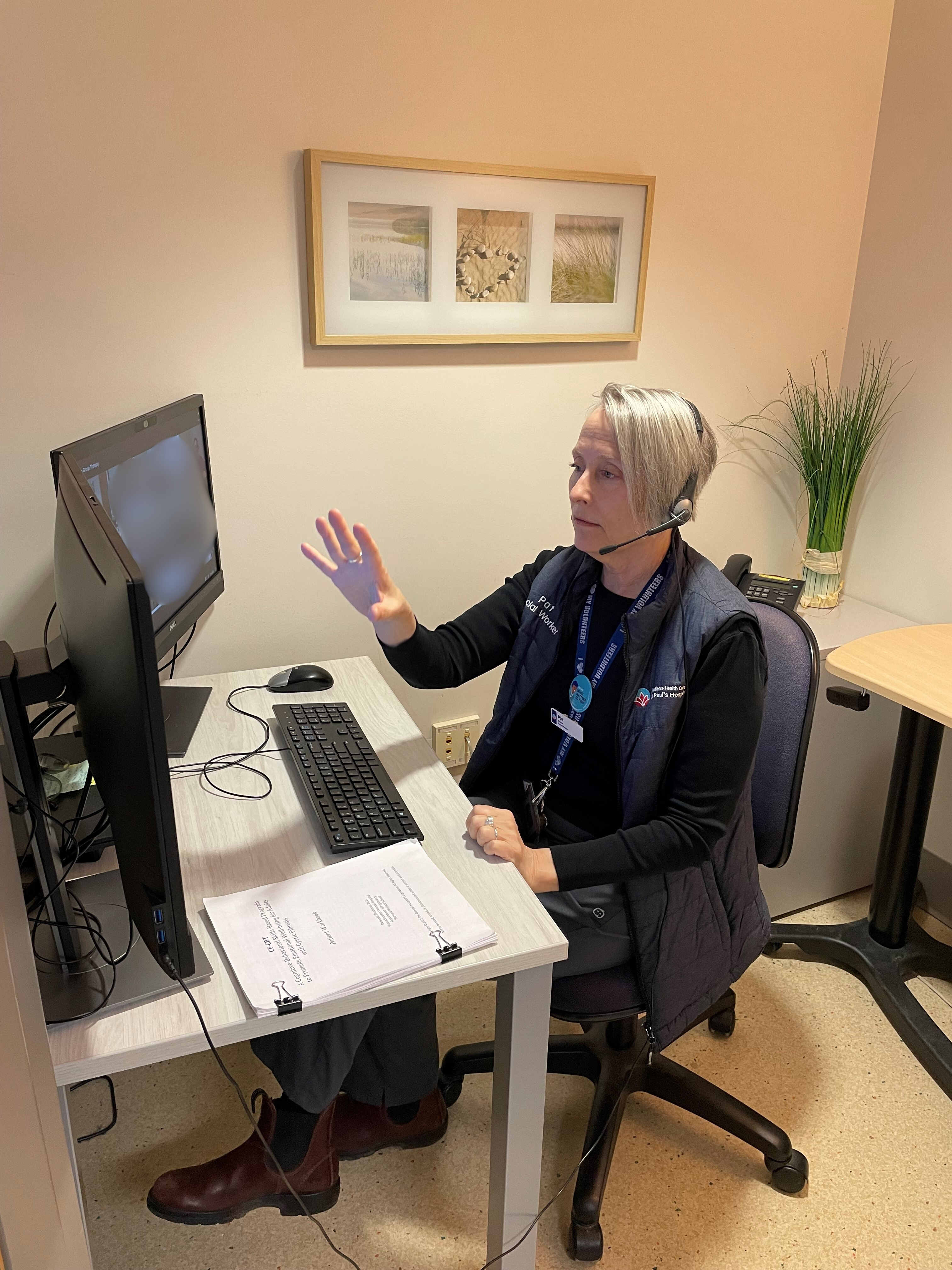One in every 3,600 children in Canada is born with cystic fibrosis, a genetic condition that affects multiple organ systems. Over the decades, medical advances have increased the median age of survival for people with cystic fibrosis in Canada from four (1960s) to just over 62 (2019).
While the data on cystic fibrosis (CF)’s toll on the lungs and digestive tract are well documented, the notable mental health impacts that are a common byproduct of the condition are less acknowledged.
A large study done on the prevalence of anxiety and depression in people with CF demonstrated that people living with the condition have a two to three times higher incidence of both anxiety and depression compared to the general population.
This high incidence can likely be pointed to the unpredictable and often deteriorating nature of CF, coupled with the emotional and physical challenges of managing daily treatments, frequent hospitalizations and the heightened risk of serious infection associated with the condition. which has spurred projects like Cystic Fibrosis Care BC’s recent mental health pilot project.
 "CF Care BC aims to improve health outcomes and optimize the delivery of care for people living with CF. This includes addressing the often ‘hidden’ challenges that are overshadowed by the intensive physical challenges associated with the condition. This is why we partnered with researchers and clinicians from the Massachusetts General Hospital and the University of Regina, as well as people living with CF, to pilot a project aimed at addressing the heavily nuanced mental health challenges of those living with the condition,” shares Callie Waters, a project manager with CF Care BC.
"CF Care BC aims to improve health outcomes and optimize the delivery of care for people living with CF. This includes addressing the often ‘hidden’ challenges that are overshadowed by the intensive physical challenges associated with the condition. This is why we partnered with researchers and clinicians from the Massachusetts General Hospital and the University of Regina, as well as people living with CF, to pilot a project aimed at addressing the heavily nuanced mental health challenges of those living with the condition,” shares Callie Waters, a project manager with CF Care BC.
Cognitive Behavioral Therapy (CBT) has emerged as a highly effective treatment for addressing anxiety and depression in various populations, including those with chronic medical conditions like CF. Recognizing the unique circumstances and needs of people living with CF, a team from the Massachusetts General Hospital authored CF-CBT, a tailored form of CBT for people living with the condition. CF-CBT touches on the emotional burden of CF, the physical challenges, and the need to balance daily treatments with a sense of normalcy.
The traditional delivery of CBT poses challenges and risks to people living with CF for several reasons:
- It’s in-person: Due to heightened risk of infection, in-person attendance for people living with CF is a barrier.
- It’s on an individual basis: As well, because of their heightened risk of infection, people living with CF often experience isolation. CBT delivered on an individual basis can exacerbate feelings of loneliness and anxiety.
Considering these challenges, in collaboration with the original authors of CF-CBT and a psychological research team from University of Regina, CF Care BC launched a pilot project to test the feasibility of offering CF-CBT in a virtual group setting.

Pat MacDiarmid, a social worker at the St. Paul’s Hospital CF Clinic, co-facilitating a CF-CBT pilot project session.
Over the course of the project, 23 participants attended eight virtual therapy sessions in groups of three.
Morgan Waddell is a social worker with the Victoria Pain Program and Adult CF Clinic at the Royal Jubilee Hospital in Victoria, BC and co-facilitated the pilot project sessions.
 “The initial results of the pilot project have been overwhelmingly positive. Pre and post surveys conducted with the participants showed significant improvements in anxiety and depression scores, as well as an increase in overall health-related quality of life. Many participants also reported high levels of satisfaction with the project and expressed appreciation for the virtual format, which allowed them to attend sessions from home or work. Most notably, the peer connection fostered in the group setting was identified as one of the most beneficial aspects of the therapy, with several participants expressing a desire to continue their connections outside of the CF-CBT group,” shares Morgan.
“The initial results of the pilot project have been overwhelmingly positive. Pre and post surveys conducted with the participants showed significant improvements in anxiety and depression scores, as well as an increase in overall health-related quality of life. Many participants also reported high levels of satisfaction with the project and expressed appreciation for the virtual format, which allowed them to attend sessions from home or work. Most notably, the peer connection fostered in the group setting was identified as one of the most beneficial aspects of the therapy, with several participants expressing a desire to continue their connections outside of the CF-CBT group,” shares Morgan.
By successfully adapting CF-CBT for a virtual group format, this pilot has opened the door to new possibilities for improving both the psychological and emotional well-being of people with CF. The pilot project team hopes to expand the project across Canada. This would be the first program of its kind in North America.
If you or someone you know is interested in participating in future CF-CBT programming, or if you want to be informed about future CF-CBT initiatives, email cfcarebc@phsa.ca.
Additional mental health resources for children, youth and adults with CF, as well as their parents, caregivers and support networks are listed in CF Care BC’s
Mental Health Resource Directory.

